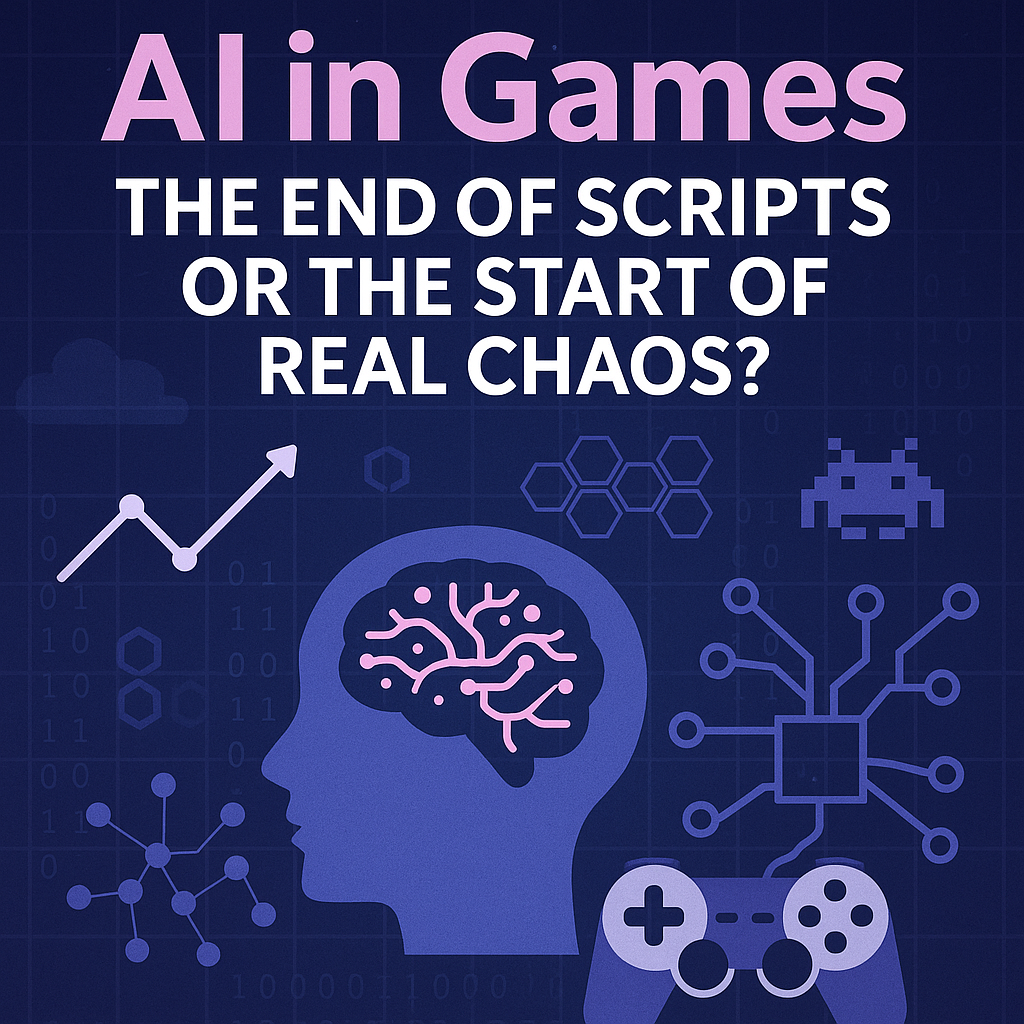AI is everywhere – almost to nauseating effect. In other words, we’re just about tired of hearing about it because often, it’s just marketers leaching onto the trend but not really doing anything AI. But in gaming, the AI is very, very real (irony intended).
AI is set to evolve the gaming industry several iterations in a flash.
So… is this the death of tightly written, cinematic narratives? Or are we on the edge of something far more chaotic—and way more interesting?
Let’s break it down.
Goodbye Scripted Events, Hello Chaos
AI-driven systems mean more emergent gameplay. Imagine a stealth mission where guards don’t just follow pre-programmed routes but adapt to your tactics. Or an open-world RPG where rival factions make real decisions, form alliances, and start wars, all without your input.
That’s not a side quest. That’s a simulation. And that simulation has a life of its own. And that’s incredible.
This also means developers have less control over the story you experience. That could be thrilling. It could also be a complete mess.
Either way, it means players become story co-creators, not just story consumers. Which might terrify every writer in the industry.
Take RimWorld as an example. It uses an emergent narrative engine disguised as a survival sim. Colonists respond to needs, trauma, relationships, and events dynamically, creating player-driven chaos.
The Death of the Re-Playthrough?
One of the most annoying things about AI is the whole “this is the end of that” mob. But alas, we’re doing that also.
We’ve always replayed games to make different choices. Pick a different class. Date a different character. Go full villain instead of paladin. But what happens when AI makes every outcome unpredictable?
In the AI-powered future, the second time you play won’t just reveal new branches—it might be an entirely different world. NPCs could have different jobs. Factions might not exist. The war you prevented the first time? It might already be over.
Which sounds incredible, until you try to explain what happened to your friend and realize no two people have played the same game. Good luck comparing endings.
While more of a narrative toy than a full game, the game AI Dungeon shows how AI can create endless, non-repeating storylines without scripts or structure. It’s totally open-ended.
Will It Actually Make Games Better?
Here’s the real question: do players want games to be this open-ended?
Not every gamer wants to babysit an evolving world or manage AI-generated chaos. Some people just want to fight dragons, romance a blacksmith, and move on with their day. There’s value in curated storytelling, handcrafted levels, and yes, even scripts.
The sweet spot might be in combining both.
Imagine scripted quests that evolve based on AI-influenced world states. Think Witcher 3 meets SimCity, but everything talks to each other. That’s the kind of hybrid future that could give us the best of both worlds.
Red Dead Redemption 2 is basically a masterclass in NPC realism. Rockstar’s devs simulator life with a narrative spin.
Final Thought: Artistry or Anarchy?
AI in gaming is still young. But its potential to flip the medium on its head is massive.
We’re moving toward a future where games are less about watching the story unfold and more about watching your choices create the story—sometimes with surprising, hilarious, or terrifying consequences.
It might be messy. It might break the illusion. But it’ll never be boring.
The age of scripted perfection is fading. What’s coming next? Total chaos. And honestly, we’re here for it.
